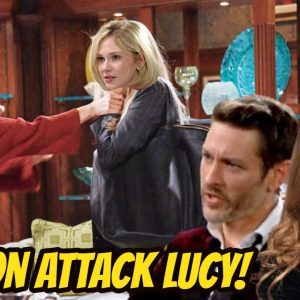Sharon stood at the precipice of her consciousness, trapped between reality and the abyss of her fractured psyche.
While the world outside continued its mundane rhythm, inside her, a tempest named Cameron raged. Cameron was not a ghost or a spectral figure haunting her steps but a manifestation of her fractured mind. Initially, he appeared as a fleeting shadow at the edge of her vision, but he soon evolved into a persistent voice, presence, and obsession.
Sharon understood that Cameron was a creation of her own mind, a symptom of a mental illness that had been simmering beneath the surface for far too long. Yet, knowing this did little to lessen his grip. Each day was a struggle to reclaim her thoughts, to remind herself that Cameron was not real. Despite her efforts, she could not escape his presence. His whispers echoed in the hollow chambers of her mind, amplifying her distress.
Every attempt to fight back only seemed to fortify Cameron’s hold. He grew stronger with each failed effort, leaving Sharon increasingly vulnerable to his influence. Cameron was a constant reminder of her illness, a living embodiment of the torment she could not escape. The more she fought, the more he seemed to thrive, feeding off her resistance.
Sharon was plagued by a chilling realization: Cameron was not just a part of her but the part she had tried to suppress—the darkness she had never confronted. This darkness now consumed her, with Cameron as its avatar. He was also engaged in his own internal battle, a struggle against a more monstrous demon clawing at the edges of his consciousness. This demon’s unyielding directive was to harm Lucy, a kind-hearted soul who had done nothing to deserve such terror.
Sharon was paralyzed by her own thoughts, torn between her desire to protect Lucy and the overwhelming urge to obey Cameron’s commands. The fight left her immobilized, unable to trust her own mind or hands. In a desperate bid for help, she reached out to those around her, but her struggle remained invisible to them. Cameron’s presence was real only to her, making her plight a silent war within her mind.

In a desperate attempt to escape Cameron’s influence, Sharon isolated herself, locking herself away in a room where she hoped Cameron’s presence couldn’t reach. However, this room became a prison where Cameron’s voice grew louder, his commands more insistent. She turned to medication, hoping the sedative effects would silence Cameron. Instead, the pills dragged her deeper into the abyss, making Cameron’s presence even more pervasive.
As Sharon struggled to find peace, she resorted to self-harm, inflicting pain on her own body in a desperate effort to drown out Cameron’s voice. The physical pain provided a temporary reprieve, a brief moment of clarity amidst the fog of her disintegrating mind. Yet, this was a fleeting escape, and the torment returned with renewed vigor.
Sharon recognized her predicament—how far she had fallen from the strong, resilient person she once was. This battle was unlike any other, a fight against the darkest corners of her mind. It seemed that only she could save herself. To defeat Cameron, she had to confront the darkness she had long avoided, the pain and trauma that had given rise to Cameron in the first place.
Could Sharon find the strength to confront these buried demons and emerge victorious? Her journey was far from over, fraught with peril, yet a glimmer of hope flickered in the darkness. If she could muster the courage to face Cameron head-on and confront the shadows within her, perhaps she could reclaim her mind and life.
Alone in her room, with the weight of her decision pressing heavily upon her, Sharon made a vow: Cameron would not win. She would find a way to defeat him, to break free from the chains of her own mind. This vow was born of desperation, pain, and fear, but it was also a vow of hope—the belief that within her lay the strength to overcome even this. And so, with determination, Sharon prepared for the battle ahead, aware that the fight for her mind was far from over but resolved to see it through to the end.





